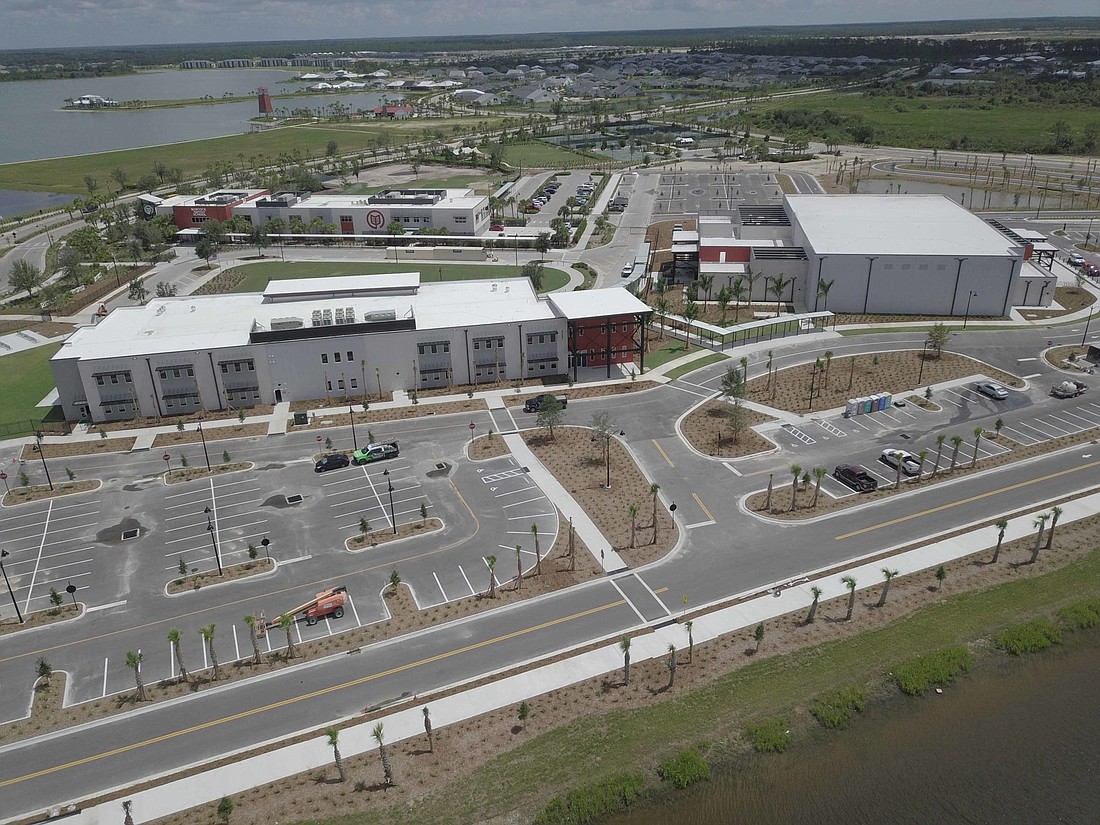Fast-tracked school meets wide range of needs
Built in less than a year, Babcock High School opened in time to serve students but also shelter the community from Hurricane Ian.
-
By
Brian Hartz
-
| 9:00 a.m. November 18, 2022
-
| 0 Free Articles Remaining!
 Babcock High School construction began in November 2021 and the facility opened in time for the 2022-23 academic year. (Courtesy photo)
Babcock High School construction began in November 2021 and the facility opened in time for the 2022-23 academic year. (Courtesy photo)
Project: Babcock High School
Location: Babcock Ranch
Continue reading your article
with a Business Observer subscription.

